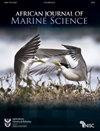The changing status of important marine fishery species in selected South African estuaries
IF 1.4
4区 生物学
Q3 MARINE & FRESHWATER BIOLOGY
引用次数: 0
Abstract
This review examines the changing status of 10 estuary-dependent marine fish species in 10 South African estuarine systems, ranging from the Kosi Estuary in the northeast to the Berg Estuary in the southwest. In all of these systems, the selected fish species were found to be in population decline, but the causes of the declines varied from one system to another. Recreational and small-scale/subsistence fishing was a common pressure on fish stocks in most of the reviewed estuaries, but environmental degradation and pollution were the prime drivers for major population declines in the St Lucia and uMhlanga estuaries, respectively. Of six primary linefish species that have been well studied, two species are categorised as having an overexploited stock status and four species have reached a collapsed level where the spawner biomass per recruit (SBR) is now <25% of the original unimpacted level. Furthermore, two of those species (dusky kob Argyrosomus japonicus and white steenbras Lithognathus lithognathus) are in the 4‒6% SBR range and have been officially categorised as Endangered on the IUCN Red List. Unless definite steps are taken to reduce fishing pressure on the species discussed in this review, and successful policies put in place to promote healthy estuarine environments around the coast, estuarydependent fish stocks will continue to decline—to the detriment of the fish populations and the people who depend on fish for food, recreation and/or employment.南非部分河口重要海洋渔业物种不断变化的状况
本综述研究了从东北部的科西河口到西南部的伯格河口等 10 个南非河口系统中依赖河口的 10 种海洋鱼类的变化状况。在所有这些系统中,所选鱼类物种的数量都在下降,但不同系统的下降原因各不相同。休闲和小规模/自给性捕捞是大多数受审查河口鱼类种群面临的共同压力,但环境退化和污染分别是圣卢西亚河口和乌姆兰加河口鱼类种群数量下降的主要原因。在已被充分研究的六个主要线鱼物种中,有两个物种被归类为过度开发种群状态,四个物种已达到崩溃水平,即每个新鱼种的产卵生物量(SBR)现在小于原始未受影响水平的 25%。此外,其中两个物种(日本褐鳕 Argyrosomus japonicus 和白薮鳕 Lithognathus lithognathus)的 SBR 值在 4-6% 之间,已被正式列入《世界自然保护联盟红色名录》(IUCN Red List)的濒危物种行列。除非采取明确措施来减少对本报告中讨论的物种的捕捞压力,并制定成功的政策来促进沿海地区健康的河口环境,否则依赖河口的鱼类种群将继续减少,这对鱼类种群以及依赖鱼类获取食物、娱乐和/或就业的人们都是不利的。
本文章由计算机程序翻译,如有差异,请以英文原文为准。
求助全文
约1分钟内获得全文
求助全文
来源期刊

African Journal of Marine Science
生物-海洋与淡水生物学
CiteScore
2.60
自引率
16.70%
发文量
17
审稿时长
6-12 weeks
期刊介绍:
The African (formerly South African) Journal of Marine Science provides an international forum for the publication of original scientific contributions or critical reviews, involving oceanic, shelf or estuarine waters, inclusive of oceanography, studies of organisms and their habitats, and aquaculture. Papers on the conservation and management of living resources, relevant social science and governance, or new techniques, are all welcomed, as are those that integrate different disciplines. Priority will be given to rigorous, question-driven research, rather than descriptive research. Contributions from African waters, including the Southern Ocean, are particularly encouraged, although not to the exclusion of those from elsewhere that have relevance to the African context. Submissions may take the form of a paper or a short communication. The journal aims to achieve a balanced representation of subject areas but also publishes proceedings of symposia in dedicated issues, as well as guest-edited suites on thematic topics in regular issues.
 求助内容:
求助内容: 应助结果提醒方式:
应助结果提醒方式:


